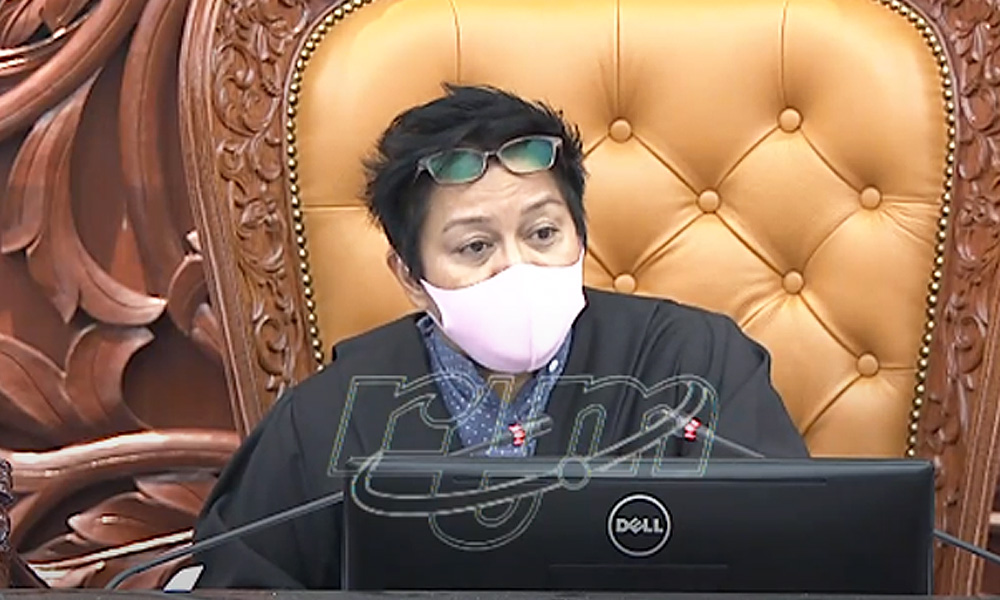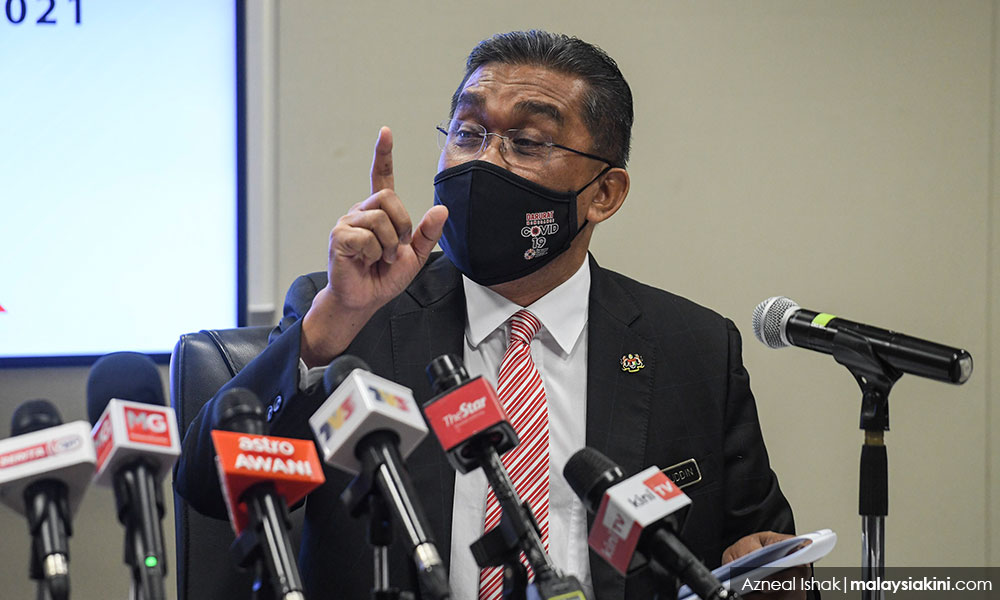LETTER | Set up a Royal Commission of Inquiry (RCI) to reform the Attorney-General's Chambers (AGC). So urged Pengerang MP and Dewan Rakyat deputy speaker Azalina Othman Said. Among others, Azalina said the RCI should look into breaking up the roles of the AGC to avoid internal conflicts of interest.
It’s not the first call by Azalina on the matter. In February, she had written to Malaysiakini as follow:
“[O]ne crucial reform urgently required to restore the public’s faith in the office of the AG and by extension, in the government of any day is to speedily separate the AG from the public prosecutor (PP). I have been insisting on this since way back in June of 2018.”
Azalina’s call then followed the furore and controversies generated by the publication of the memoir of former AG Tommy Thomas.
The call for the separation of the roles of the AG was also incidentally made out by Transparency International Malaysia (TI-M) following the release of Transparency International’s 2020 Corruption Perceptions Index (CPI) on Jan 28. Malaysia’s score deteriorated to 51 points in 2020 compared with 53 points in 2019. Malaysia’s ranking in the CPI also deteriorated from 51 in 2019 to 57 in 2020.
The drop of six places meant that compared to other countries, Malaysia was not improving as well as other countries in efforts to fight corruption. According to TI-M, one of the possible reasons for this deterioration was that “institutional reforms have stalled”, including “the separation of powers between the Attorney General and Public Prosecutor [which has] yet to be initiated by the Government.”
If we are to look beyond our shores, there are at least two countries with some form of separation between the two roles.
The first is Hong Kong where a Securities and Futures Commission (SFC) is established. The SFC is an independent statutory body. The SFC's work is defined and governed by the Securities and Future Ordinance (the Ordinance), which sets out its powers, roles and responsibilities.
Section 388 of the Ordinance sets out the SFC’s power to prosecute, in its own name, offences under the Ordinance and certain criminal offences under the Companies (Winding Up and Miscellaneous Provisions) Ordinance, the Companies Ordinance, and the Anti-Money Laundering and Counter-Terrorist Financing (Financial Institutions) Ordinance. The SFC can only prosecute offences summarily before a magistrate.
But nothing in Section 388 of the Ordinance derogates from the powers of the Secretary for Justice in respect of the prosecution of criminal offences. The Secretary for Justice is a member of the executive council – the cabinet – and is the government’s chief legal adviser as well as heads the Department of Justice (DOJ). The office-holder was formerly called attorney-general.

Article 63 of the Basic Law of the Hong Kong Special Administrative Region provides that the DOJ shall control criminal prosecutions, free from any interference. That constitutional guarantee of independence ensures that prosecutors act independently without any political or other influence.
The framework of arrangement between DOJ and SFC was last set out in 2016 in a memorandum of understanding between the two offices to formalise and further strengthen cooperation in the handling of criminal cases under the Ordinance.
The second country is the United Kingdom where a Serious Fraud Office (SFO) is established under the Criminal Justice Act 1987 (CJA) and was established in 1988. The SFO is a specialist prosecuting authority tackling the top level of serious or complex fraud, bribery and corruption.
The SFO is unusual in the UK in that the office both investigates and prosecutes its own cases. It was set up as such because the “cases are complicated and lawyers and investigators need to work together from the beginning”. The staff includes investigators, lawyers, forensic accountants, analysts, digital forensics experts and a variety of other people in specialist and support roles.
The SFO is superintended by the UK AG in accordance with a 2009 protocol which has been replaced by a 2019 framework agreement.
Over the years, the SFO has tackled some of the biggest fraud cases in UK history. It has had a mixed fortune, though, but its supporters have long argued that it is needed more than ever.

Following Azalina’s call, de facto Law Minister Takiyuddin Hassan said the government was open to considering such an RCI.
According to Takiyuddin, the government has no objections to consider setting up an RCI if there is a need based on facts, laws, and also the steps of certain quarters which “may raise questions on the integrity and confidence towards the legal body which is supposed to act as the government's legal adviser and gate-keeper of criminal justice.”
He added that the government is already planning to split the functions of the AG and Solicitor General (SG). A comparative research with other countries to see what is suitable for Malaysia is imperative.
I hereby beg to propose to the minister to see the above two models if any or both are suitable for the country.
Now, the minister will have to go back to November last year when he said in Parliament that the cabinet was then set to receive the final report on a proposal to separate the roles of the AG and the SG by the year's end. He was responding to Shah Alam MP Khalid Samad.
So, it is curious that the minister should say the same thing.
Unless the report on the separation of the roles of the AG has been received by the cabinet, it’s here we go again.
The views expressed here are those of the author/contributor and do not necessarily represent the views of Malaysiakini.

